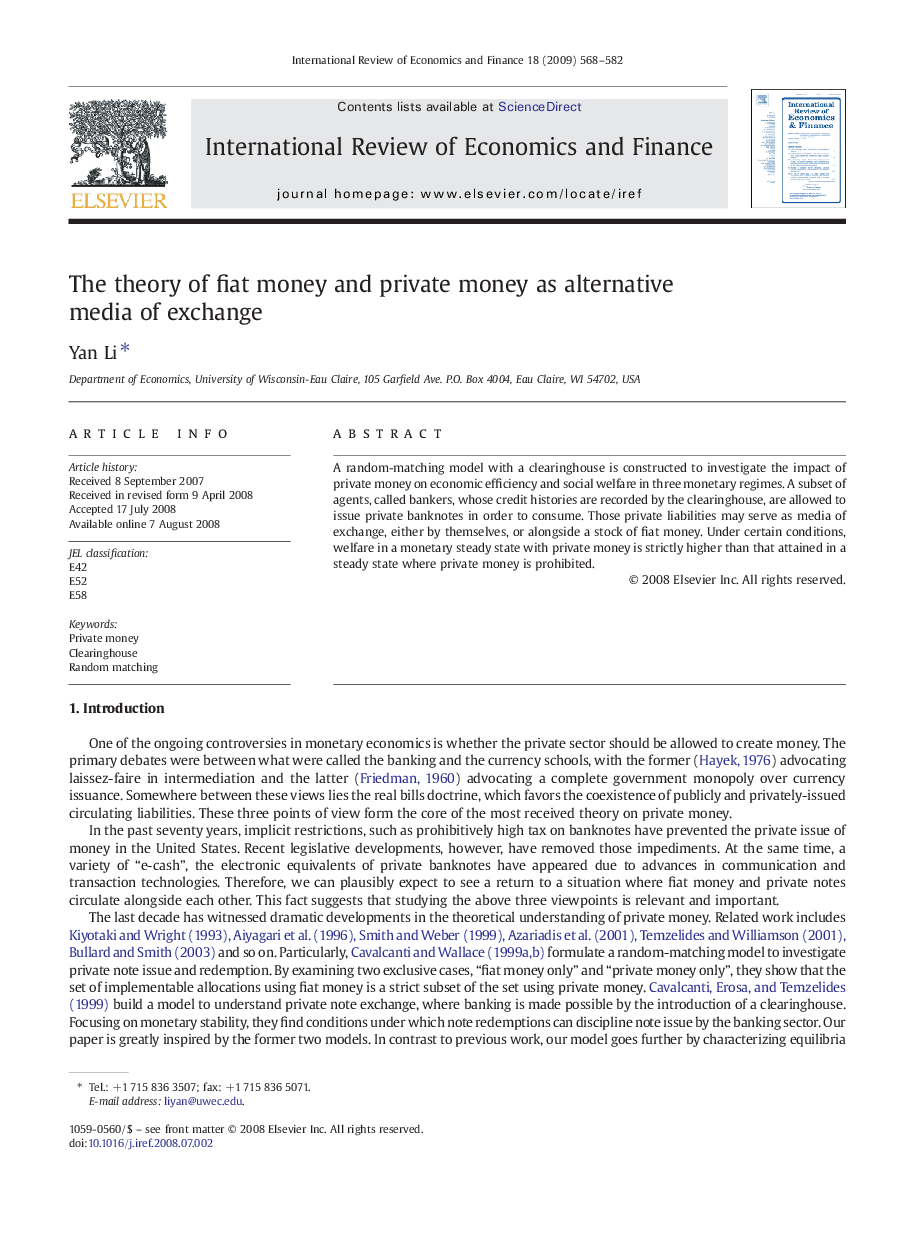| Article ID | Journal | Published Year | Pages | File Type |
|---|---|---|---|---|
| 5084186 | International Review of Economics & Finance | 2009 | 15 Pages |
Abstract
A random-matching model with a clearinghouse is constructed to investigate the impact of private money on economic efficiency and social welfare in three monetary regimes. A subset of agents, called bankers, whose credit histories are recorded by the clearinghouse, are allowed to issue private banknotes in order to consume. Those private liabilities may serve as media of exchange, either by themselves, or alongside a stock of fiat money. Under certain conditions, welfare in a monetary steady state with private money is strictly higher than that attained in a steady state where private money is prohibited.
Related Topics
Social Sciences and Humanities
Economics, Econometrics and Finance
Economics and Econometrics
Authors
Yan Li,
